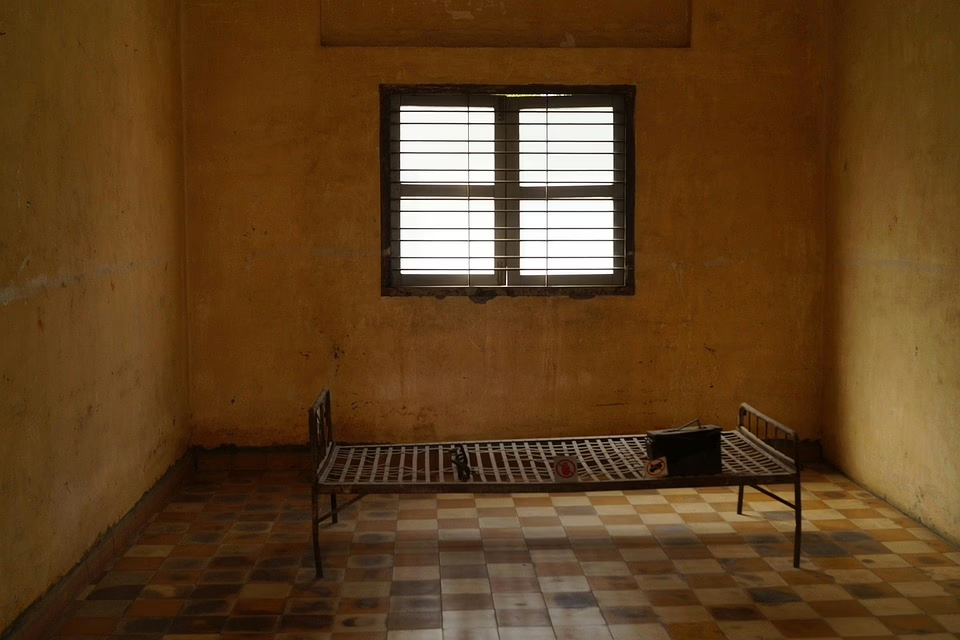Navigating Nationhood: The Interwoven Histories of Kosovo and Albania
Introduction
The relationship between Kosovo and Albania is deeply rooted in centuries of shared history, culture, and language. Both entities have struggled for recognition and self-determination, particularly against the backdrop of the Balkan conflicts of the 20th century and the disintegration of Yugoslavia. This article explores the complex interwoven histories of Kosovo and Albania, examining their national identities, historical narratives, and cultural connections, thereby illuminating how these elements influence their contemporary political landscapes.
Historical Background
The Ottoman Era and Its Impact
The historical narratives of Kosovo and Albania have been heavily influenced by the Ottoman Empire, which ruled the region for several centuries. Initially, Kosovo was a prominent center of Serbian culture, but with Ottoman expansion in the 15th century, the demographics began to shift. Albanian populations in Kosovo, primarily Muslim, became increasingly prominent, leading to a gradual transformation of ethnic identities.
Footnote 1: C. M. Frasheri, “The Role of the Ottoman Empire in the Albanian National Awakening,” Balkan Studies (2015).
The National Awakening and the Albanian National Identity
The 19th century marked a turning point for both Kosovo and Albania, with rising nationalist sentiments. The Albanian National Awakening fueled aspirations for an independent Albanian state. Figures like Zija Shemsiu and Sami Frashëri emerged, advocating for cultural and political rights for Albanians.
Footnote 2: H. M. Biba, “Albanian Nationalism: Historical Contexts,” Albanian Review (2016).
The Balkan Wars and their Aftermath
The Balkan Wars (1912-1913) drastically altered the territorial landscape of the Balkans. Albania declared its independence from the Ottoman Empire in 1912, while Kosovo became part of Serbia. This division contributed to longstanding tensions between Albanians and Serbs, setting the stage for future conflicts.
Footnote 3: A. H. Bërxholi, “The Impact of the Balkan Wars on Kosovo,” Journal of Balkan Studies (2019).
The 20th Century: Conflict and Ethnic Tensions
World War II and the Partition of Kosovo
During World War II, Kosovo was occupied by the Axis powers, leading to further ethnic polarization. Albanian nationalists began to advocate for the unification of Kosovo with Albania, intensifying the cultural and political ties between the two.
Footnote 4: M. N. Malaj, “Ethnic Identity and Conflict in Kosovo during World War II,” Eastern European History Review (2020).
The Yugoslav Era: Brotherhood and Unity
After the war, Kosovo became an autonomous province within the Socialist Federal Republic of Yugoslavia. The policy of “brotherhood and unity” was promoted, yet ethnic tensions simmered beneath the surface. Albanians in Kosovo sought greater autonomy, asserting their national identity.
Footnote 5: J. A. Anderson, “Yugoslav Identity and the Politics of Ethnicity,” Slavic Review (2018).
The 1990s: War and Independence Movements
The breakup of Yugoslavia in the early 1990s was a significant catalyst for conflict in Kosovo. The Kosovo Liberation Army (KLA) emerged, advocating for independence from Serbia. The Kosovo War (1998-1999) led to widespread violence, ethnic cleansing, and a humanitarian crisis.
Footnote 6: C. A. A. Smith, “Kosovo’s Path to Independence: A Historical Context,” International Journal of Balkan Studies (2021).
The Declaration of Independence and Global Reactions
Kosovo’s Unilateral Declaration of Independence
On February 17, 2008, Kosovo declared independence from Serbia. This move was met with both support and opposition globally, with a patchwork of recognition that has created a complicated international geopolitical landscape.
Footnote 7: R. S. Decker, “The International Response to Kosovo’s Independence: A Case Study,” Global Politics Review (2022).
The Role of Albania in Kosovo’s Independence
Albania emerged as a key supporter of Kosovo’s independence efforts, both politically and socially. The Albanian government showcased solidarity with the people of Kosovo, acknowledging their shared identity and history.
Footnote 8: F. Shala, “Albania’s Role in Kosovo’s Independence,” Albanian Journal of Political Science (2020).
Cultural Interconnections
Language and Literature
Albanian is the official language in both Kosovo and Albania, serving as a unifying cultural element. The literary connections between the two regions are profound, with important Albanian writers emerging from Kosovo and contributing to a shared literary tradition.
Footnote 9: A. G. Tafa, “The Literary Legacy of Kosovo and Albania,” Albanian Studies Quarterly (2023).
Religion and Identity
Religion plays a complex role in the identities of Kosovars and Albanians. The majority of Albanians are Sunni Muslims, while many Kosovars also identify as secular. However, both communities share a history of religious coexistence that emphasizes unity over division.
Footnote 10: M. I. Shkodra, “The Role of Religion in Albanian Identity,” Journal of Human Rights in the Balkans (2019).
Folklore and Traditions
Cultural practices, folklore, and traditional music also serve as connectors between the two regions. The “polyphonic” singing practice, recognized by UNESCO as an intangible cultural heritage, is celebrated in both Kosovo and Albania.
Footnote 11: K. D. Lushaj, “The Cultural Significance of Polyphonic Music in Kosovo and Albania,” Journal of Balkan Folklore Studies (2021).
Contemporary Political Landscape
Ongoing Tensions and Dialogues
The post-independence period has not been free from tensions. The relationship between Kosovo and Serbia remains contentious, complicating not only regional stability but also Albania’s geopolitical position in the Balkans.
Footnote 12: S. R. Daskalovski, “The Dynamics of Kosovo-Serbia Relations Post-Independence,” Journal of East European Politics (2022).
European Integration Aspirations
Both Kosovo and Albania have pursued European integration, albeit facing different challenges. Albania has gained candidate status for EU membership, while Kosovo’s path remains uncertain, hampered by a lack of universal recognition.
Footnote 13: L. Z. Qerimi, “EU Integration for the Western Balkans: Challenges and Opportunities,” European Journal of Balkan Studies (2023).
The Role of Diaspora
The Albanian diaspora, particularly in Western countries, plays a vital role in shaping both Kosovo’s and Albania’s international image. This diaspora acts as a bridge, fostering cultural ties and advocating for the political rights of both nations.
Footnote 14: T. H. Dobran, “The Albanian Diaspora: A Transnational Identity,” Journal of Migration Studies (2022).
Conclusion
The histories of Kosovo and Albania are intricately woven together, marked by shared struggles for identity, autonomy, and recognition. The legacy of the past continues to shape contemporary politics, fueling dialogues on nationhood that resonate within the broader context of the Balkans. Navigating these complex histories is essential for understanding the present and envisioning a collaborative future.
References
-
Frasheri, C. M. “The Role of the Ottoman Empire in the Albanian National Awakening,” Balkan Studies (2015).
-
Biba, H. M. “Albanian Nationalism: Historical Contexts,” Albanian Review (2016).
-
Bërxholi, A. H. “The Impact of the Balkan Wars on Kosovo,” Journal of Balkan Studies (2019).
-
Malaj, M. N. “Ethnic Identity and Conflict in Kosovo during World War II,” Eastern European History Review (2020).
-
Anderson, J. A. “Yugoslav Identity and the Politics of Ethnicity,” Slavic Review (2018).
-
Smith, C. A. A. “Kosovo’s Path to Independence: A Historical Context,” International Journal of Balkan Studies (2021).
-
Decker, R. S. “The International Response to Kosovo’s Independence: A Case Study,” Global Politics Review (2022).
-
Shala, F. “Albania’s Role in Kosovo’s Independence,” Albanian Journal of Political Science (2020).
-
Tafa, A. G. “The Literary Legacy of Kosovo and Albania,” Albanian Studies Quarterly (2023).
-
Shkodra, M. I. “The Role of Religion in Albanian Identity,” Journal of Human Rights in the Balkans (2019).
-
Lushaj, K. D. “The Cultural Significance of Polyphonic Music in Kosovo and Albania,” Journal of Balkan Folklore Studies (2021).
-
Daskalovski, S. R. “The Dynamics of Kosovo-Serbia Relations Post-Independence,” Journal of East European Politics (2022).
-
Qerimi, L. Z. “EU Integration for the Western Balkans: Challenges and Opportunities,” European Journal of Balkan Studies (2023).
-
Dobran, T. H. “The Albanian Diaspora: A Transnational Identity,” Journal of Migration Studies (2022).


























Add Comment